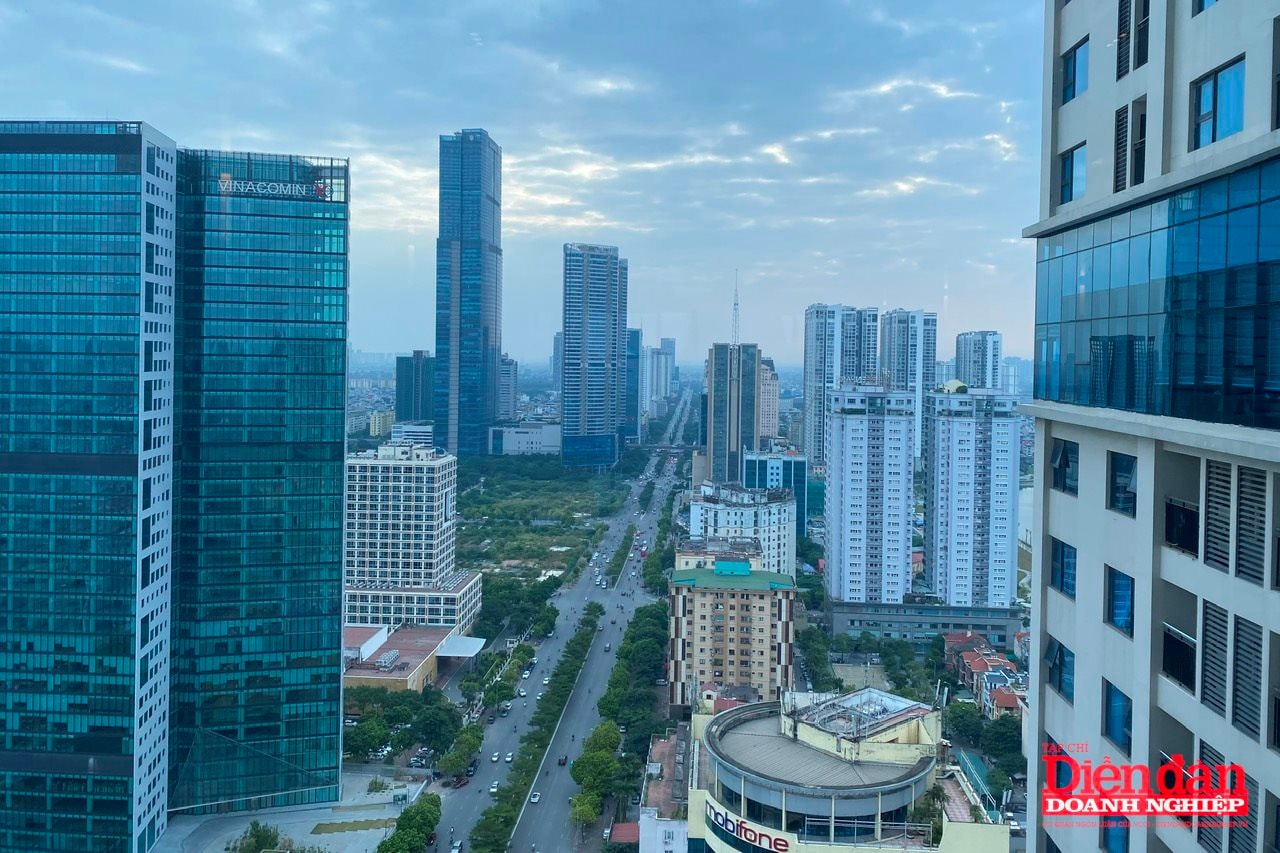Property market expected to recover on removed legal obstacles
It is anticipated that as a number of real estate projects are lawfully released, increasing supply and easing price pressure, the purchasing power for homes will increase.

As hundreds of projects around the country face legal challenges, a number of new policies are being put into place, and the real estate market in Vietnam is showing encouraging signs. This is viewed as a pivotal moment that will spur a surge in supply, increasing the number of options for home ownership.
Projects to be resolved
According to the Vietnam Real Estate Brokerage Association's (VARS) March 2025 report, Hanoi has up to eight fresh projects with 10,000 apartments up for sale. The majority of the new supply entering the real estate market is still Vinhomes, Masterise Homes, etc.
Notably, VARS projects that supply will keep rising in the near future as legal restrictions are progressively lifted as a result of particular government decrees and action plans. To be more precise, the government issued Decree 75/2025/ND-CP and Decree 76/2025/ND-CP in early April in order to implement the resolutions of the National Assembly for easing the challenges facing the real estate market.
Deregulating processes not only helps companies resume projects that have been put on hold for a long time, but it also gives people greater chances to own a home, particularly in large cities. According to VARS Chairman Nguyen Van Dinh, this action will ease financial strain, improve business cash flow, and have a beneficial ripple impact on the Vietnamese economy as a whole.
The Ministry of Construction announced the plan to implement Resolution No. 66 of the Government on administrative procedure reform in the first week of April. The goal is to reduce business conditions and unnecessary investment by at least 30%, expedite application processing, and lower compliance costs for businesses.
The chairman of GP Invest's board of directors, Nguyen Quoc Hiep, said, "Reducing administrative procedures not only saves costs for businesses but also accelerates project implementation, helping to cool down housing prices."
The general director of Novaland, Mr. Duong Van Bac, shared this opinion and thought that streamlining processes and project approvals would improve cash flow, lower housing costs, attract investment capital, and avoid resource waste.
The supply is going to blow up
VIS Rating's research "Residential Real Estate Sector-Outlook for 2025" reports that over 70% of the businesses it surveyed are having cash flow issues. Nonetheless, removing legal obstacles and expediting the planning process will allow projects to proceed with their implementation this year.
Approximately 14,000 new units will be added to the primary supply in the Vietnam real estate market in 2Q25, a 90% increase over the previous quarter. Data from the Dat Xanh Services Institute of Economic, Financial, and Real Estate Research (DXS-FERI) indicates that from the start of this year, the entire accumulated primary supply may amount to 52,000 units.
In particular, it is anticipated that projects like Kepler Land Mo Lao, The Matrix One Premium, and SKY M Hạ Long will produce about 4,000 units in Northern Vietnam. About 2,000 flats will come from Central Vietnam, while over 7,500 homes from a number of well-known developments, including The Privé, Happy One Sora, and Lan Anh Avenue, will dominate Southern Vietnam.
"Market confidence will gradually recover, unfinished projects will be restarted, activating capital flow and increasing liquidity for Vietnam property market," said Le Đinh Chung, general director of SGO Homes.
However, Chung also pointed out that companies must proactively rearrange their investment portfolios, giving priority to initiatives with a clear legal standing and significant market potential, in order to ensure the market's lasting revival.
Real estate businesses should aggressively restructure and sell off underperforming assets in order to concentrate their essential resources, according to several perspectives expressed in recent meetings to address challenges. The legal elements continue to be the largest obstacle, though, as banks are unable to release funds, firms are unable to carry out projects, and products cannot be marketed while the projects are still unfinished.
For those who must purchase a home, the removal of legal barriers is raising expectations. Unfinished projects will be finished and put on the market when supply is increased, which will assist in stabilizing home prices and give purchasers additional options.
According to Le Đinh Chung, the "revived projects" will spur growth in nearby regions and aid in the rehabilitation of the market as a whole.
The Vietnamese real estate industry is poised for change due to the government's resolute efforts and the proactive approach taken by communities and companies. Buyers can anticipate a clear, stable market with more options in the upcoming quarters if the challenges are properly addressed.








